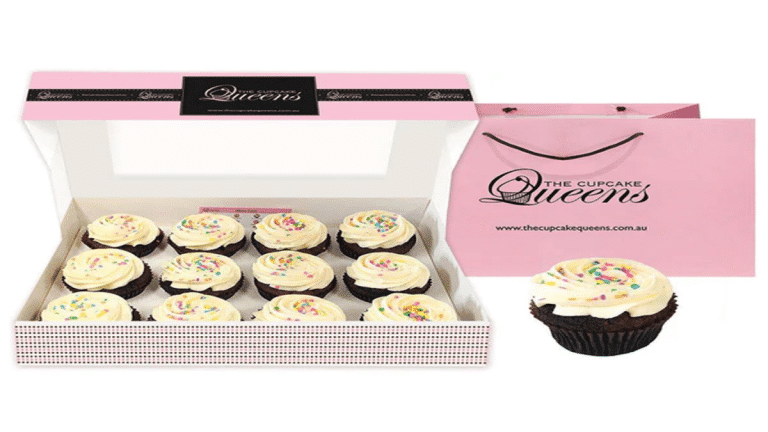Gluten-free foods seem to be all the rage. While you might think it’s just a health fad, it’s essential to know that this option makes it possible for people with celiac disease to enjoy cakes and other baked goods.
Whether your next family party or business event calls for bread, cake, or even cupcake delivery, it’s a good idea to opt for gluten-free products right off the bat. How exactly do gluten-free foods differ from regular ingredients? Is there a difference in taste? Keep reading as our experts answer these questions and more.
Contents
What Exactly is Gluten-Free?
Gluten is fundamentally a structural protein found naturally in specific cereal grains, including wheat, barley, and rye. The following foods are among those most commonly containing gluten:
- Bread
- Cakes and other baked goods
- Pasta
- Pizza
Typically, gluten contains no essential nutrients. This means that a lack of it won’t hamper your diet in any way. However, if you’re one of the 70 Australians who suffer from celiac disease, then this specific protein will trigger a negative, and sometimes painful, reaction in your intestine.
Too much gluten can also disrupt the balance of bacteria in your microbiome. This in turn can cause inflammation to your gut lining. The term gluten-free refers to foods made without this harmful protein compound.
Do Gluten-Free Foods Taste Different?
One of the reasons why some people may not like gluten-free foods is that there’s a mild difference in flavour. This is because some gluten-free flours are naturally sweet, while others are nutty. If you’re baking your own gluten-free products, our experts suggest testing a few different flours to find the option you find most palatable.
When using a bakery, it’s a good idea to order a sample to determine if you like the taste. In many instances, the sweetness and nuttiness may actually enhance the flavour. Ultimately this will depend on your personal reference. Once you notice a reduction in digestive issues, you might find that you don’t mind the difference in taste!
A Few Good Reasons to Switch to Gluten-Free
Many people who regularly cater or host events that require a meal or snacks, choose to opt for gluten-free products to ensure that they cater to all dietary needs. Alternatively, you can also ask your baker to make a mix of both regular and gluten-free options.
In this instance, you will need to label the gluten-free options, as they will look exactly the same. Here are a few more reasons why gluten-free products are a healthier alternative.
1. Improves Potential Digestive Issues
Digestive issues such as excessive gas, bloating, and diarrhoea are often the result of gluten intolerance. Even the mildest sensitivity can cause these symptoms. For instance, if you consume a lot of white bread during the day, you may find yourself experiencing a few of these symptoms in the evening. Reducing your gluten intake will improve your overall health and provide you with some much-needed relief.
2. Reduces IBS Symptoms
Irritable bowel syndrome, also commonly called IBS, is a gut disorder that leads to severe intestinal and digestive problems. The most common of these are:
- Constipation
- Bloating
- Gas
- Diarrhoea
Usually, patients with IBS will have been advised to consume a low-FODMAP diet. This is a specialized diet that focuses on consuming short-chain carbohydrates rather than wheat proteins. Avoiding gluten will ensure that you reduce or eliminate any potential IBS symptoms.
3. Minimizes Inflammation
With all the weird and wonderful food combinations people consume in a day, it’s not uncommon to experience the occasional inflammation in the digestive tract. This type of inflammation can severely affect the way a person suffering from celiac disease feels after eating even the smallest amount of wheat.
More alarming is that celiac disease can often develop into other chronic diseases such as heart disease or cancer. Avoid the negative effects associated with gluten by opting for gluten-free snacks, sweets, and baked treats.
4. Increases Weight Loss Efforts
Gluten-rich foods are also on the list of foods to avoid when you’re trying to regulate your weight. This is because gluten-free foods are generally less processed. Combined with healthier gluten-free ingredients means you’ll be consuming foods that not only reduce gut issues but also promote weight loss.
5. Increases Energy Levels
With busy schedules and hectic work routines, we can all do with more energy. A little-known fact is that too much gluten can affect your energy levels. This can lead to you feeling sluggish and generally run down.
Reducing you gluten intake will boost your energy levels. Combine your gluten-free desserts and snacks with an increased dose of fruits and vegetables will help your body absorb as many healthy nutrients as possible.
Final Thoughts
There was a time when suffering from celiac disease, IBS, or any other gut-related ailment would mean that you had to avoid tasty treats altogether. With gluten-free ingredients becoming more readily available, it’s easier than ever to still enjoy your favourite treats without the negative side effects. It’s as simple as asking your bakery for gluten-free cupcakes, cakes, bread and other sweet treats!

